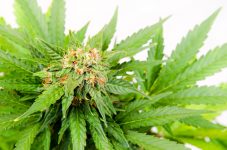Cannabis Legalisation in Australia: It’s Only a Matter of Time

The United States led the way in establishing the international system of drug prohibition last century. The intensification of drug law enforcement known as the war on drugs was launched by US president Richard Nixon in 1971.
Even in India – a country where cannabis has long played an important role in the culture – the government banned the plant in 1985 under pressure from US president Ronald Reagan.
But, the times are certainly changing. Right now, recreational cannabis is legal in ten US states, plus the District of Columbia. On 6 November, Michigan became the latest state to vote in pot for pleasure, while in California – the fifth largest economy in the world – you can buy cannabis retail.
Straight after Canada legalised recreational cannabis nationally in October, dispensaries were struggling to keep up with demand. And in September, South Africa’s highest court upheld a lower court ruling, which effectively legalised the home use and cultivation of cannabis across the country.
Despite the fact that around seven million Australians have consumed cannabis in their time, a lot of locals still believe legal cannabis will never happen down here. However, there are two bills currently before Australian parliaments that more than hint that the change is just around the corner.
A capital idea
Last week, ACT Labor MLA Michael Pettersson introduced a bill into the capital’s parliament that would legalise personal cannabis possession and use. With the full backing of the Labor members, all that’s needed is one extra vote to pass it.
“The Greens have committed to it in principle and will look at the detail,” a spokesperson from Mr Pettersson’s office told Sydney Criminal Lawyers®, “but they’re on board with the idea.” Indeed, the ACT Greens has long been a supporter of legalising the personal use of the plant.
“The Liberal Party attempted to send it to committee, but was defeated.” the spokesperson continued, “We expect it to come back in February and be passed with an operating date of 1 July 2019.”
So, if this bill does pass in the ACT, what becomes legal? Well, the Drugs of Dependence (Personal Cannabis Use) Amendment Bill 2018 provides that the possession of up to 50 grams of cannabis is legal for a person over the age of 18.
It also allows for an individual to cultivate up to four plants that aren’t hydroponic or cultivated using artificial light or heat. The legislation also establishes penalties around smoking in public or within 20 metres of a child.
Commentators have warned that the federal government has the authority overturn such laws if they’re passed in the ACT, just like it did two years after the Northern Territory passed the world’s first euthanasia laws back in 1995.
However, personal cannabis possession and use has been decriminalised in the ACT since 1992, with no federal interference. This scheme had to be updated in 2005 from the initially permitted 25 grams to 50 grams, once it was realised that most people buy an ounce, which is around 28 grams.
Across the border
If cannabis soon becomes legal in the ACT one can imagine that it’s only a matter of time that the legality of recreational cannabis somehow seeps across the border into the laws of the larger jurisdiction NSW, which wholly surrounds the territory.
Long-time cannabis activist Loren Paul Wiener remarked that if the ACT bill is passed and Labor – as is expected – comes through in the March NSW state election then it’s only a matter of time before similar laws to those of their counterparts in the capital are drafted.
Mr Wiener also points to the Adam Searle medicinal cannabis bill, which is one of the most progressive pieces of cannabis legislation to have come before an Australian parliament. It’s set to be reintroduced next year and would have a sure chance of being passed with Labor in power.
From the top down
Meanwhile the Australian Greens introduced a legal recreational cannabis bill into federal parliament last week, with an eye to incrementally establishing a market across the country, which would allow for retail product, as well as homegrown.
The Australian Cannabis Agency Bill 2018 would initially establish the production and distribution of recreational cannabis in the ACT and the Northern Territory, under the provisions of section 122 of the Australian Constitution.
But, the Greens envisage that as this recreational market grows, the states would be able to adopt the legal cannabis laws, as stipulated in section 51(xxxvii) of the Constitution, which again would only seem a matter of time once the substance is legal on one side of the border and not the other.
“This bill creates a legal way for people to access recreational cannabis,” Australian Greens leader Richard Di Natale explained in a press release. “It establishes a new federal government body, the Australian Cannabis Agency, that will licence the growth, distribution and sale of cannabis products.”
The legislation provides that individuals can apply for licences to grow cannabis for the market. And Australians would also be allowed to grow up to six plants at home for recreational use, and they’d be able to distribute this to friends so long as it’s free.
“This is a sensible and evidence-based approach that breaks the business model of criminal syndicates,” Senator Di Natale further said. He added that since the Greens announced their plans to legalise weed back in April this year, more US states and Canada have made the switch.
What the people want
Currently, 50 percent of all illicit drug arrests in this country are cannabis-related and 91 percent of those are for small amounts, which means a hell of a lot of people are coming into contact with the criminal justice system over a drug that is relatively harmless.
The fact that politicians are now putting themselves on the line over cannabis legalisation, is a reflection that this is what the general public actually wants.
And this is hardly surprising, around one in three Australians have partaken in cannabis, and that’s everyone’s daughters, sons, mothers and fathers. And no one wants to see them criminalised over a drug that’s 46 times less harmful than what everyone is legally downing at the local pub.







